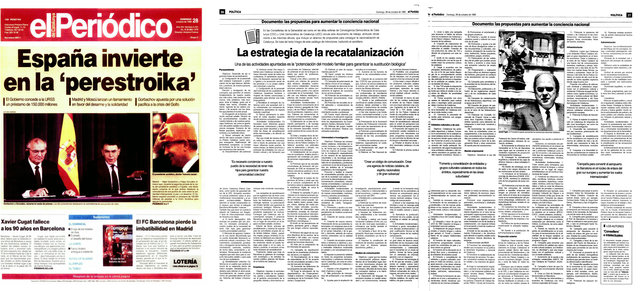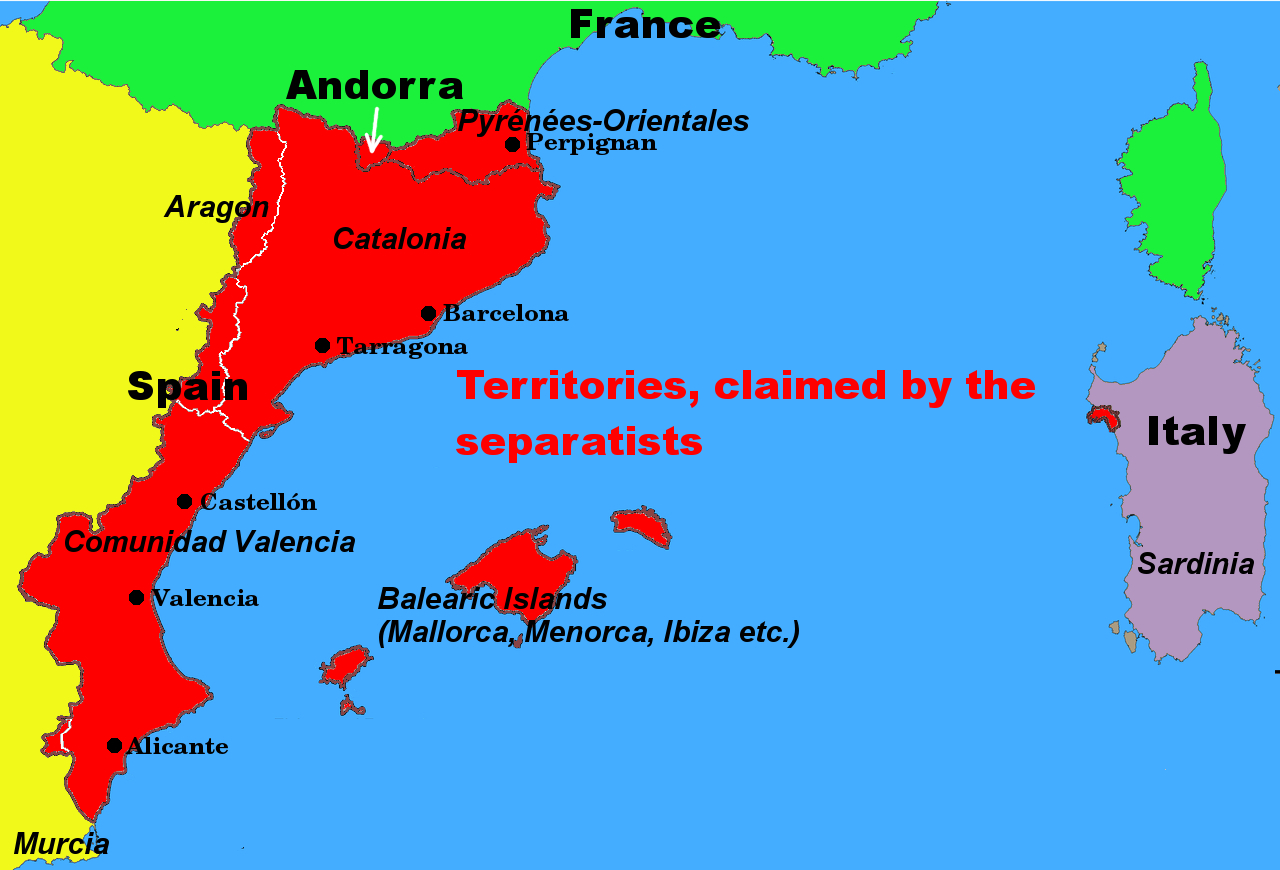Is it okay to laugh about it?
Catalonia split in two: Tabarnia and Lazilandia
I have to admit, I laughed out loud when I saw this picture. As the English laugh at jokes about the Irish, and vice versa. They all play with prejudices that don't necessarily have anything to do with reality, sometimes they even just transfer your own inadequacies to others. In the latter case one laughs only at oneself, which is not bad if one is aware of it and aware of one's own prejudices.
Tabarnia was originally founded as a satire about the separatists and we know that in satire they can do anything. This satire is particularly „sneaky“. Those who speak English better than Spanish may spontaneously understand Lazilandia refers to lazy.
Why isn't it called Lazolandia? When you realize that the Spanish word for the yellow ribbons separatists wear is „lazos“, you notice that it very probably refer to „land of ribbons“. My Spanish is not good enough to give an answer why it is called Lazi- and not Lazolandia.
What I understand is that the industrial regions of Tabarnia (Tarragona and Barcelona) again voted strongly against the separatists in the last election. The chart illustrates the election results of the separatist ERC, which celebrates itself as the big winner among the separatist parties. Tabarnia comments: „In 40 years of democracy the Independentistas have never won an election. They have never won more votes than non-nationalists. In the last general elections they reached 40%, even though they had invested billions over decades in propaganda.“
The separatists are strong only in the rural regions and one must be aware that 80% of the Catalans live in Tabarnia. The electoral system with the preference of rural areas seems to ensure that the tail can wag the dog.
How to judge the Valencia election result?
In Valencia, the most important representative of a national policy is the Compromís Party (green coloured nationalists). The German CBN judged on 31 May 2019: „The jubilation of Compromís, who ...once again celebrated an election victory with 27.44% and ten seats and with the help of the Socialists (19.24%/7 seats) will probably rule for another four years, stood in stark contrast to the long faces in Alicante and the situation of the party alliance ... in the province. On the Costa Blanca, the third strongest formation in the region did not“ achieve anything that could be regarded as a success.
On this blog I only talk about questions of nationalism and language. I leave no doubt that I am against exaggerated nationalism, be it German, British, Spanish, Catalan or Valencian, and that I reject any attempt to use the imposition of a language in general and as a means of nationalist politics.
In this sense, it is important to remain vigilant, because even the PSOE, which will probably provide the future president, has in the past in Valencia not exactly been anxious to combat exaggerated nationalism within its own ranks, and it has not played fairly with all of us when it comes to imposing Valenciano on us.
Myths and deceptions of Catalan nationalism

Here you'll find the translation
The strategy of recatalanization
 1980 the Spanish journal "El Periodico" published a secret document about the strategy of the Catalan government. It shows in a frightening way the actual spiritual world of the separatist leaders.
1980 the Spanish journal "El Periodico" published a secret document about the strategy of the Catalan government. It shows in a frightening way the actual spiritual world of the separatist leaders.Now it is available in english translation.
Pancatalanism
the separatist's imperial claim
 The Catalan government exports the conflict into communities with Catalan population, supporting all efforts of the separatists including financial means to destroy Spain.
The Catalan government exports the conflict into communities with Catalan population, supporting all efforts of the separatists including financial means to destroy Spain. An important tool is the establishment of a language dictatorship that is not afraid to use the same means as Franco.
Separatist indoctrination

Click here to read the study
Publications
 The title says: "Catalonia, a conflict is exported. Insights of a migrant"
The title says: "Catalonia, a conflict is exported. Insights of a migrant"Sorry, up to now, this book is only available in German. However, drop us a line, if you are interested to learn more Contact.

